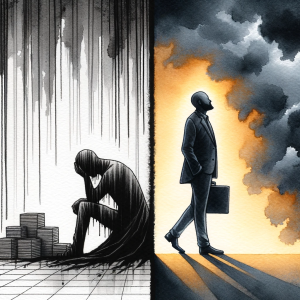
Understanding the “Ban the Box” Movement and Its Complex Impact on Employment
In recent years, the “Ban the Box” (BTB) movement has gained significant momentum as a policy designed to improve the job prospects of individuals with criminal records. However, the article The Intended and Unintended Consequences of Ban the Box from the Annual Review of Criminology, paints a more complex picture of the policy’s impact. This blog aims to unpack the intricacies of BTB, making this research accessible for a high school-level audience and highlighting its public health implications.
What is Ban the Box?
Ban the Box refers to laws and policies removing the question about criminal history from initial job applications. The idea is to delay the background check until later in the hiring process, allowing candidates with criminal records a fairer chance to demonstrate their qualifications. Since Hawaii first implemented BTB in 1998, it has become widespread, now covering about three-fourths of the U.S. population.
The Good, the Bad, and the Unintended
While BTB is well-intentioned, its effects are more nuanced than one might expect. The article reports some improvements in public sector employment for people with criminal records. This is a positive development, suggesting that when the public sector leads by example, it can make a real difference.
However, the private sector tells a different story. Here, the research indicates that BTB policies do not significantly improve employment prospects for individuals with criminal histories. More concerning, these policies appear to have unintended negative consequences, particularly for African-American men. Employers, unable to differentiate applicants based on criminal history, may resort to statistical discrimination, stereotyping based on race or ethnicity.
Public Health and Employment: A Link We Can’t Ignore
The employment challenges faced by individuals with criminal records are not just economic issues; they have profound public health implications. Employment is a key determinant of health, influencing access to resources, living conditions, and stress levels. Policies like BTB, therefore, have the potential to significantly impact community health, especially in marginalized populations.
Where Do We Go From Here?
Given these mixed outcomes, it’s clear that while BTB is a step in the right direction, it’s not a complete solution. Additional strategies, such as wage subsidies, public insurance for new hires, and certificates of rehabilitation, might offer more targeted and effective support for individuals with criminal histories.
Conclusion
In summary, “Ban the Box” policies reflect a commendable effort to combat employment discrimination against individuals with criminal records. However, as the article “The Intended and Unintended Consequences of Ban the Box” reveals, the reality is complex, and the policy’s effectiveness varies across sectors. As policymakers and public health practitioners navigate these waters, it’s crucial to balance the need for fair employment practices with a keen awareness of potential unintended consequences.
Stay Current with Public Health
Step into the role of a public health change-maker with ‘This Week in Public Health.’ Each issue brings you closer to the heartbeat of community health, innovative research, and advocacy. It’s more than news; it’s a platform for transformation. Subscribe for free and join a community of informed individuals driving positive change in public health every week.



